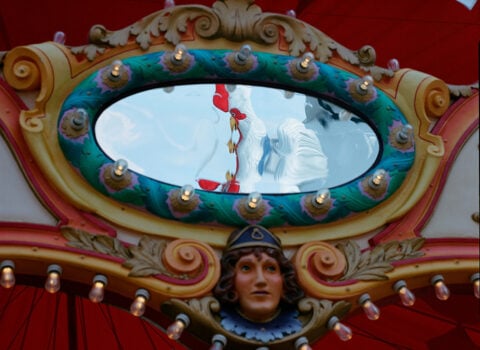Scientists performed surgery on the hoods of cobras to determine how ribs turned into hood bones and rib muscles turned into hooding muscles. A number of the snakes awoke from anesthesia during the surgery, which the scientists found “disconcerting.” An escaped monocled cobra in Germany succumbed to exhaustion after being caught by double-sided tape. After the roof collapsed on a rabbit show in Nyköping, Sweden, many of the rabbits—including British giants, dwarf hotots, Himalayans, and lionheads—mated amid the ruins. A young Floridian bald eagle was recovering after being struck by a golf ball. The Poultry Research Unit at Mississippi State University reported success in more efficiently heating the houses of broiler chickens. The Welsh planned to continue killing their badgers. Greek researchers tracked brown bears who rub against telephone poles and occasionally gnaw through them. Zoologists revealed the existence of an Amazonian leech with giant teeth, tiny genitalia, and a preference for living in people’s noses. Otolaryngologists placed gyroscopes in the mouths of dolphins and on the horns of bulls. Researchers discovered that horned-frog tadpoles scream in distress. “We have,” said the lead researcher, “definitely underestimated their abilities.”
British researchers were using bee hotels to train bees as bomb sniffers, and biomaterials scientists reported progress in their quest to produce bee silk. Beewolves use antibiotics. The southern cuckoo bumblebee was seen in Scotland for the first time in fifty years. Bumblebees have the fastest color vision of any animal, and sociable queen bees have bigger mushroom bodies in their brains than do solitary queens. Swarming decisions among large honeybees are determined by an oligarchy, and flocking decisions among pigeons are determined by prestige-weighted votes. Earthworms travel in herds. The medial prefrontal cortices of women who claim not to care about body image are activated by photos of unfamiliar fat women. Male fallow deer groan “honestly.” Mother birds warn unhatched chicks about the quality of their lives-to-be. Entomologists described the technique whereby masked birch caterpillars proclaim leaf ownership. British minorities who have many supportive relatives are likelier to fear death. Alzheimer’s sufferers who are made happy retain those feelings even after they no longer remember why they are happy.
Engineers found that lightning encourages the growth of mushrooms, physicists suspected a parity violation of the strong force, and geologists suggested that Earth’s magnetic poles were once at the equator. Lava lamps should work on Jupiter. Astronomers photographed an eclipse of the star Epsilon Aurigae, attributing the occultation to “a thin disc of opaque dust trailed by a massive and unseen companion.” An island claimed by both Bangladesh and India vanished into the ocean. China and Nepal agreed on the height of Mt. Everest. War was making Iraqi children shorter. People who feel powerful underestimate the time it will take them to complete a given task, and great apes understand that they sometimes make bad choices. Studies of humankind’s original states—in China, Egypt, the Indus Valley, Mesopotamia, and Peru—suggest that the emergence of bureaucracy catalyzed predatory imperial expansion. Archaeologists in Italy unearthed a 1,700-year-old, 1,000-pound lead coffin whose contents remain unknown.




